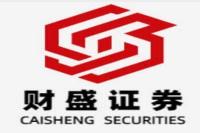Navigating the Global Trade Landscape: China's WTO Strategy in 2024 and Beyond
Meta Description: Deep dive into China's proactive engagement with the WTO in 2024, exploring its strategies for leveraging global trade rules, fostering economic growth, and navigating international trade complexities. Learn about China's WTO policy, investment facilitation, e-commerce agreements, and the impact on its domestic market.
The recent 2024 National WTO Work Conference held in Beijing (November 25-27) painted a vivid picture of China’s ambitious and proactive approach to global trade. Forget the tired narratives of passive participation; this conference showcased a nation flexing its economic muscles on the world stage, strategically wielding the WTO’s mechanisms to propel its own development while simultaneously contributing to a more equitable and open global trading system. It's a fascinating story, one that blends high-level policy discussions with real-world implications for businesses, consumers, and global economic stability. This isn't just about trade agreements and legal jargon; it's about China's vision for its future, its place in the global economy, and its commitment to shaping a more interconnected world. We'll unpack the key takeaways from the conference, delve into the nuances of China's WTO strategy, and explore the potential ramifications for both domestic and international stakeholders. Buckle up, because we're about to embark on a journey into the heart of China's ambitious global trade ambitions. This isn't your grandpa's trade policy discussion – this is a dynamic, ever-evolving landscape that demands our attention. Are you ready to understand how China is playing its cards in the global trade game? Let's dive in!
China's WTO Engagement: A Proactive Approach
The 2024 National WTO Work Conference underscored China's proactive engagement with the World Trade Organization (WTO). Gone are the days of simply reacting to global trade dynamics; China is now actively shaping them. The conference highlighted several key achievements, including the successful conclusion of the WTO’s 13th Ministerial Conference (MC13), a significant milestone that injected much-needed momentum into global trade liberalization. This wasn't just about showing up; China played a pivotal role in securing tangible results, pushing for outcomes that benefit not only itself but the wider global community. Think of it as a masterclass in strategic multilateralism.
Moreover, the completion of the ninth Trade Policy Review (TPR) demonstrates China's commitment to transparency and accountability within the WTO framework. This comprehensive review subjected China's trade policies to intense scrutiny, providing a valuable opportunity to showcase its ongoing reforms and commitment to a market-oriented economy. This isn't just a box-ticking exercise; it's a testament to China's confidence in its economic model and its willingness to engage in constructive dialogue. It's a strategic move to build trust and credibility on the global stage.
The conference also emphasized the importance of leveraging the WTO platform to promote China's deepening reforms and opening-up initiatives. This is about more than just showcasing achievements; it's about actively shaping the narrative surrounding China's economic transformation. By actively participating in WTO discussions and sharing its experiences, China aims to influence the global trade agenda and promote a more inclusive and equitable trading system. This proactive approach reflects a shift from a primarily reactive stance to a more assertive role in global governance.
Furthermore, the conference stressed the importance of trade policy compliance. This isn't just about abiding by rules; it's about proactively shaping them to reflect China's evolving economic needs and its commitment to a rules-based international order. This meticulous attention to detail highlights China’s dedication to building a strong and resilient trading system that works for all parties involved.
The conference concluded with an ambitious call to action: actively engaging with high-standard international trade rules. This includes exploring the possibility of pioneering the implementation of the WTO's Agreement on Trade Facilitation (TFA) and the Agreement on Electronic Commerce (e-commerce). This is about leading by example, showcasing China's commitment to modernizing its trade infrastructure and embracing new technologies. It signals a desire not only to participate but to lead in shaping the future of global trade.
High-Level Openness and Deepening Reforms: China's Strategic Vision
China's WTO strategy is intrinsically linked to its broader economic development goals. The pursuit of high-level openness isn't simply a matter of conforming to international norms; it's a central pillar of its strategy for achieving high-quality development. By embracing international standards and actively participating in WTO initiatives, China aims to create a more favorable environment for domestic businesses to compete on the global stage. This isn't just about exports; it's about creating a robust and dynamic domestic economy that can thrive in a globally competitive environment. Think of it as a symbiotic relationship: international engagement fuels domestic growth.
This proactive approach to trade policy is not without its challenges. Navigating the complexities of international trade negotiations requires a delicate balancing act. China must find ways to protect its domestic industries while simultaneously promoting greater market access for foreign businesses. This requires a nuanced understanding of global trade dynamics and a willingness to engage in constructive dialogue with trading partners. It's a delicate dance, requiring shrewd diplomacy and a long-term perspective.
The successful implementation of the WTO's Agreement on Trade Facilitation and the Agreement on Electronic Commerce would mark a significant step forward in China's integration into the global trading system. These agreements would streamline customs procedures, reduce trade costs, and promote the growth of e-commerce, creating new opportunities for Chinese businesses to expand their reach into international markets. This is about seizing the opportunities presented by globalization, not shying away from them.
Protecting Industrial Interests and Supporting Business Growth
The 2024 conference emphasized the crucial role of the WTO in protecting China's industrial interests and supporting the growth of its enterprises. The WTO provides a platform for resolving trade disputes and ensuring fair competition. China leverages this platform to address trade barriers and unfair practices, protecting its domestic industries from unfair competition. This isn't just about protectionism; it's about ensuring a level playing field for Chinese businesses.
The conference highlighted the importance of providing effective services to support enterprise development. This includes providing businesses with the necessary information and resources to navigate the complexities of international trade, ensuring that they can fully leverage the opportunities presented by the WTO framework. This is about empowering businesses to compete on the global stage. It’s a practical, hands-on approach that bridges the gap between policy and practice.
The conference’s emphasis on creating a first-class business environment underscores China’s commitment to attracting foreign investment and fostering economic growth. By creating a fair, transparent, and efficient regulatory environment, China aims to attract foreign investment and encourage the growth of both domestic and foreign businesses. This isn't just about attracting capital; it's about creating a vibrant and dynamic business ecosystem.
FAQs: Addressing Your Burning Questions about China's WTO Strategy
Q1: What is the significance of China's proactive engagement in the WTO?
A1: China's proactive approach signifies a shift from being a passive participant to an active shaper of global trade rules. This allows China to advocate for its interests, push for reforms, and influence the direction of global trade. It's a strategic move to solidify its economic position on a global scale.
Q2: How does China's WTO strategy contribute to its economic development?
A2: By engaging actively in the WTO, China gains access to international markets, attracts foreign investment, and benefits from streamlined trade procedures. This fosters economic growth, innovation, and competitiveness. It's a powerful engine driving economic progress.
Q3: What are the key challenges faced by China in its WTO engagement?
A3: Balancing the interests of domestic industries with the need for openness and fair competition is a key challenge. Navigating complex international negotiations and addressing trade disputes effectively are also crucial aspects. It's a constant juggling act requiring delicate diplomacy and strategic thinking.
Q4: How does China use the WTO to protect its industrial interests?
A4: China utilizes the WTO's dispute settlement mechanism to address trade barriers and unfair practices. This protects domestic industries from unfair competition and ensures a level playing field for Chinese businesses. It's a vital mechanism for safeguarding national economic interests.
Q5: What is the role of the WTO in supporting Chinese enterprise development?
A5: The WTO provides a stable and predictable trading environment, facilitating business growth and enabling Chinese businesses to expand internationally. The WTO also provides resources and support to help businesses navigate the complexities of international trade. It's a cornerstone of supporting business expansion.
Q6: What are the long-term implications of China's WTO strategy?
A6: China's proactive engagement in the WTO is likely to shape the future of global trade, fostering greater integration and potentially influencing the development of international trade rules. This will have lasting implications for the global economy and China's role within it. It's a strategic play with long-term ramifications.
Conclusion: A New Era of Global Trade Engagement
China's engagement with the WTO is entering a new era, defined by proactive participation, strategic maneuvering, and a commitment to shaping the future of global trade. This isn't simply about compliance; it's about leadership. By actively engaging in WTO initiatives, promoting high-standard trade rules, and prioritizing the interests of its businesses, China is solidifying its position as a key player in the global economy. This proactive approach is not only beneficial for China but also contributes to a more stable, efficient, and equitable global trading system. As China continues to navigate the complexities of the international trade landscape, its actions will undoubtedly shape the future of global commerce for years to come. The ongoing evolution of China's WTO strategy is a story worth watching closely.



